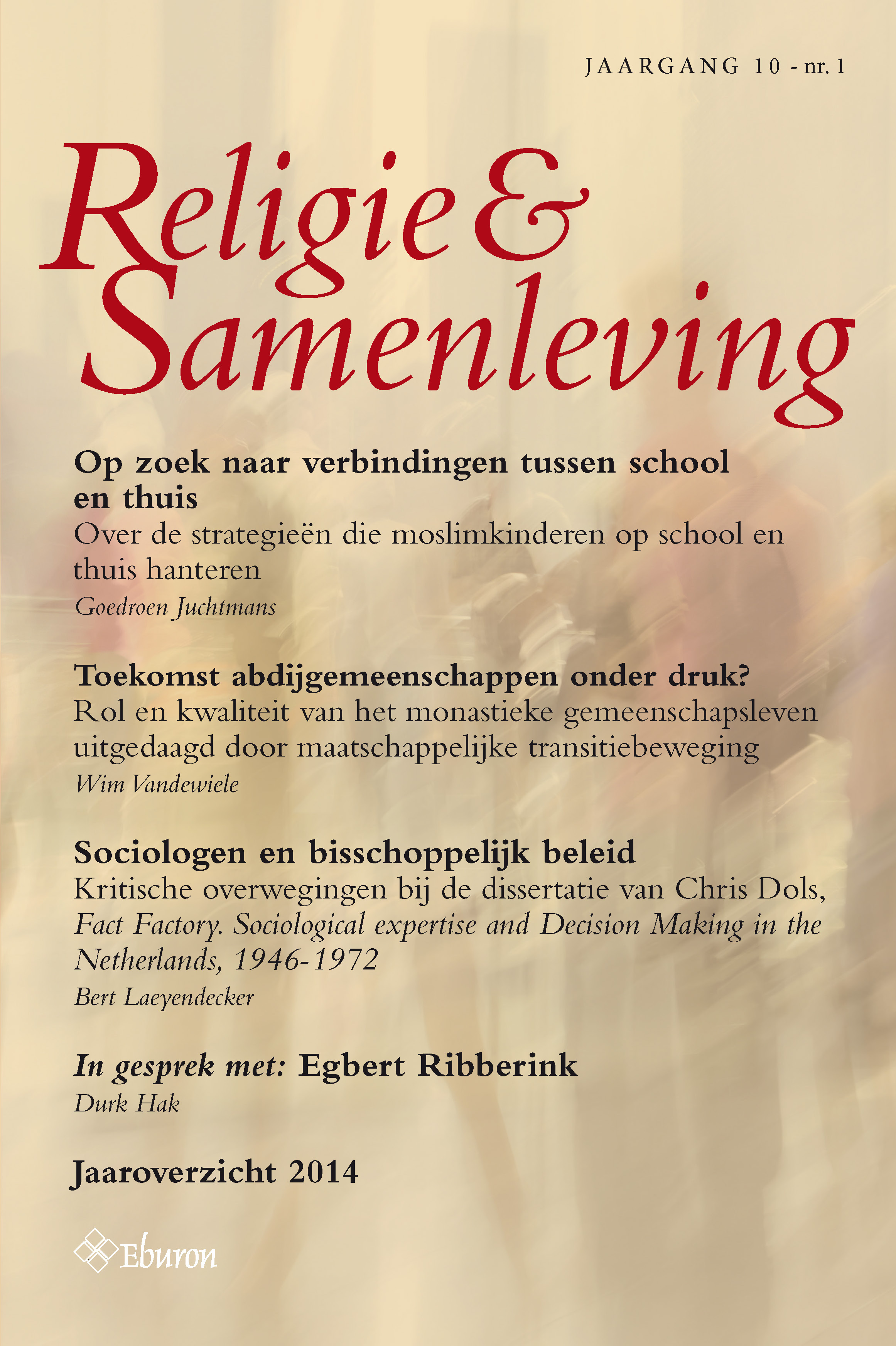Toekomst abdijgemeenschappen onder druk?
Rol en kwaliteit van het monastieke gemeenschapsleven uitgedaagd door maatschappelijke transitiebeweging
DOI:
https://doi.org/10.54195/RS.12261Samenvatting
The religious landscape of present-day Western-European society is characterized on the one hand by a high level of secularisation and on the other by an increased religious plurality (Berger 2000). The values intrinsic to a religiously oriented life in community are often diametrically opposed to the dominant Western-European thinking patterns like individualism, utilitarianism and scientism. It is in this context not self-evident to consciously choose monastic life and it is moreover difficult to remain committed as a monk or a nun to a life characterised by a quasi-linear continuity and by exceptional obligations and limitations (Merkle 1992). This article starts out by focusing briefly on an ethnographic study describing the physical and social environment of a specific contemplative Trappist community, the Abbey of Sint-Sixtus in Westvleteren (Belgium), thus contributing to the creation of a more objective image of contemplative orders in today’s society. It concludes with an analysis of the societal transition that challenges the role and the quality of present-day monastic community life.




